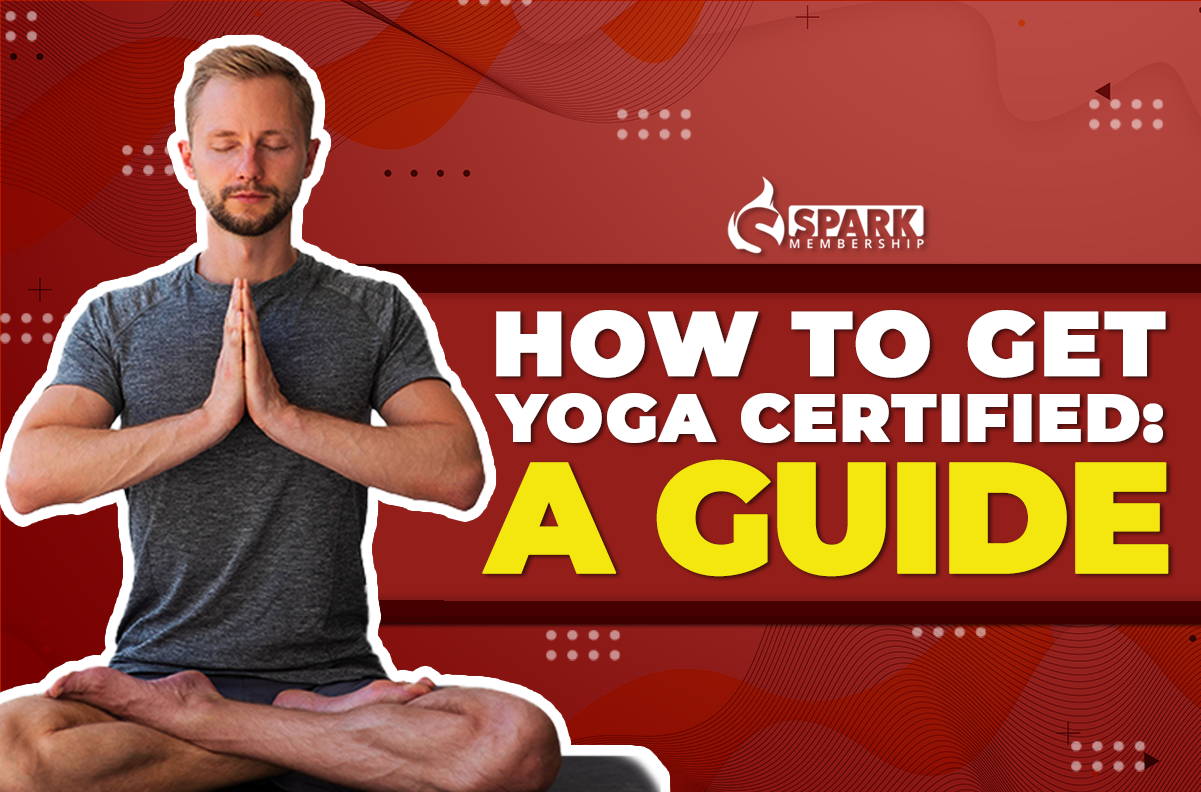
If you’re reading this, chances are you love yoga and are thinking about turning this passion into a fulfilling career. Becoming a certified yoga instructor not only deepens your practice but also allows you to share your love of yoga with others. This guide aims to simplify the path towards yoga certification, providing you all the steps, tips, and inside knowledge you’ll need.
How Long Does it Take to Get Yoga Certified?
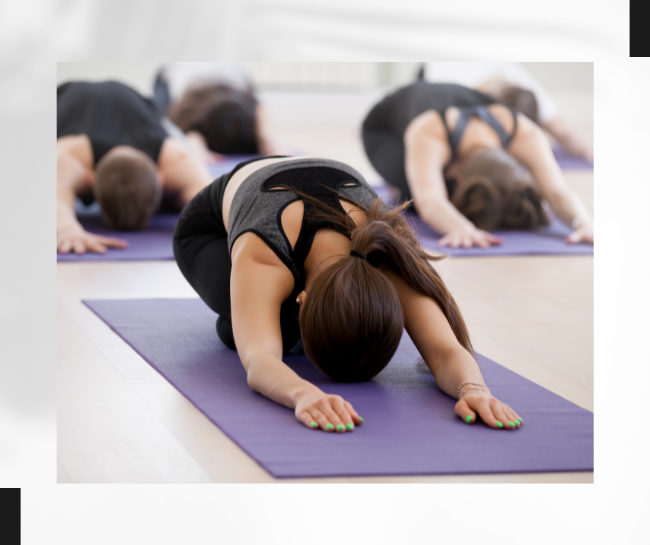
The duration to become a certified yoga instructor varies based on the type and intensity of the training program you choose. Here’s a more detailed breakdown:
- 200-hour Yoga Teacher Training (YTT): This is the standard foundation course. When done full-time, this course can typically be completed in a month if it’s an intensive daily program. If you opt for a part-time format, such as weekend classes, it can span three to five months.
- 500-hour YTT: This is a more advanced training and can take anywhere from three to six months full-time. If pursued part-time, it might take a year or even longer.
- Intensive Retreats: Some retreat-style courses offer immersion programs in serene environments. These can range from two weeks to two months and are usually intensive, focusing heavily on daily practice and learning.
- Specialized Certifications: If you’re aiming to specialize in certain types of yoga, such as prenatal or children’s yoga, the training duration can vary. These specialized courses can range from a weekend workshop to a few weeks.
💡 It’s crucial to remember that the duration also depends on your personal pace of learning, dedication, and the amount of time you can commit each day or week. It’s beneficial to choose a pace that aligns with your lifestyle and learning preference to get the most out of the training.
Which Certificate is Best for Yoga?
Choosing the right yoga certification can be pivotal for your teaching journey. The best certificate often depends on your goals, the style of yoga you’re passionate about, and where you plan to teach. Let’s delve into some of the most recognized yoga certifications and what they offer:
RYT 200 (Registered Yoga Teacher 200-Hour):
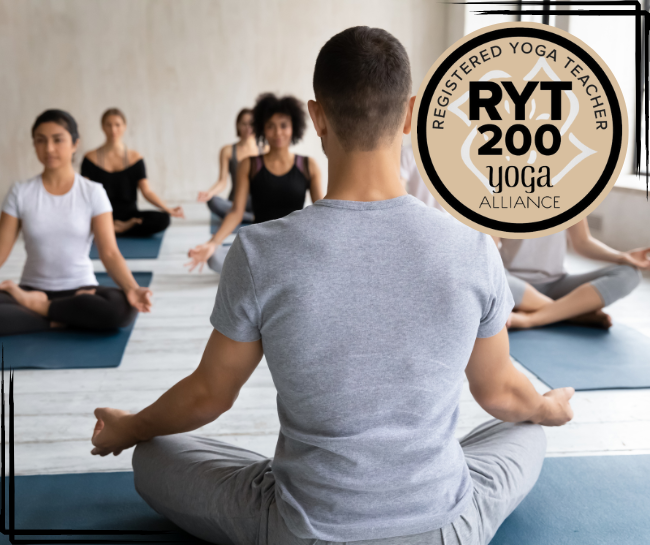
- Overview: This is the foundational level of training approved by the Yoga Alliance. It covers basic yoga philosophy, postures, and teaching methodologies.
- Best for: Those starting their yoga teaching journey. It’s the most common starting point for instructors worldwide
- Where you can teach: Any yoga studio that recognizes the Yoga Alliance standards.
RYT 500 (Registered Yoga Teacher 500-Hour):
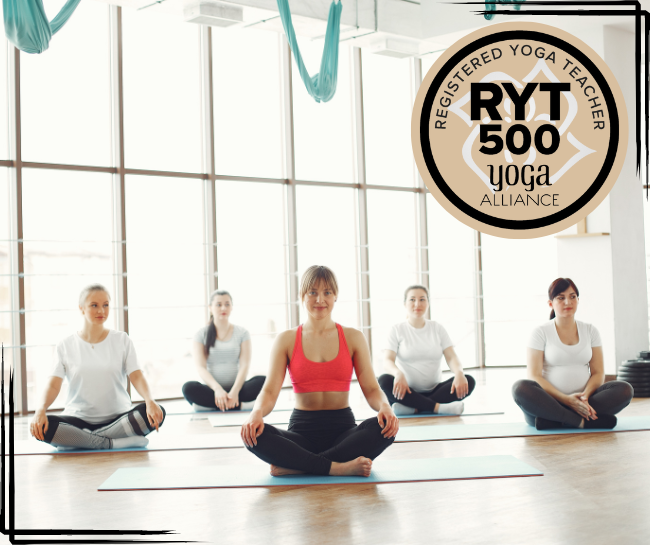
- Overview: An advanced level of training, going deeper into yogic philosophies, advanced postures, and specialized teaching skills.
- Best for: Those who have completed the 200-hour training and are looking to deepen their expertise.
- Where you can teach: Any advanced yoga studio or workshop, especially those looking for instructors with a deeper understanding of yoga.
Prenatal Yoga Teacher (RPYT):
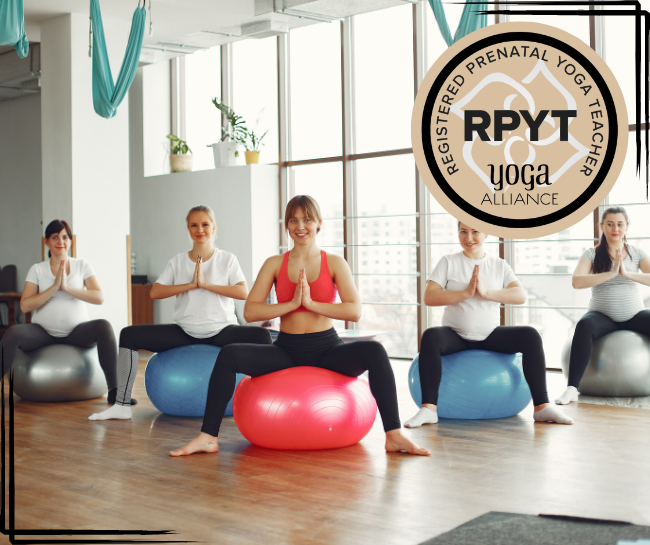
- Overview: Specialized training focused on the anatomy, philosophy, and postures suitable for pregnant women.
- Best for: Existing yoga teachers aiming to cater to pregnant clientele.
- Where you can teach: Pregnancy wellness centers, specialized prenatal yoga studios, and general yoga studios offering prenatal classes.
Children’s Yoga Teacher (RCYT):
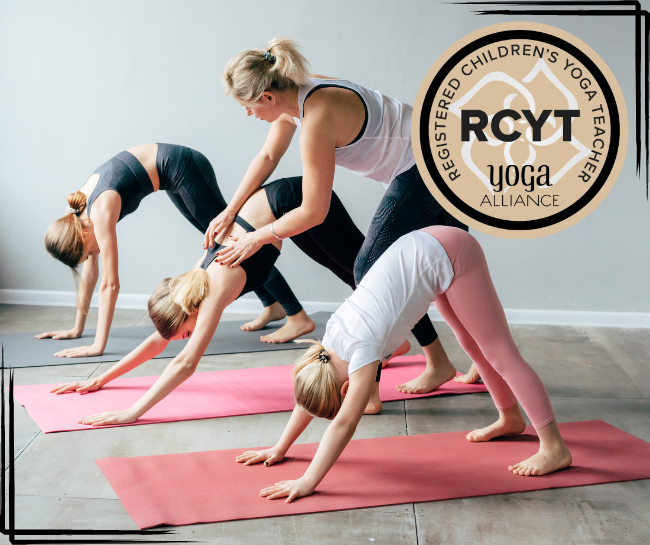
- Overview: Training tailored for teaching yoga to children, covering child psychology, learning methodologies, and appropriate asanas.
- Best for: Those passionate about working with kids and promoting early wellness.
- Where you can teach: Schools, children-focused yoga studios, or as part of community programs.
Yoga Therapist Certification:
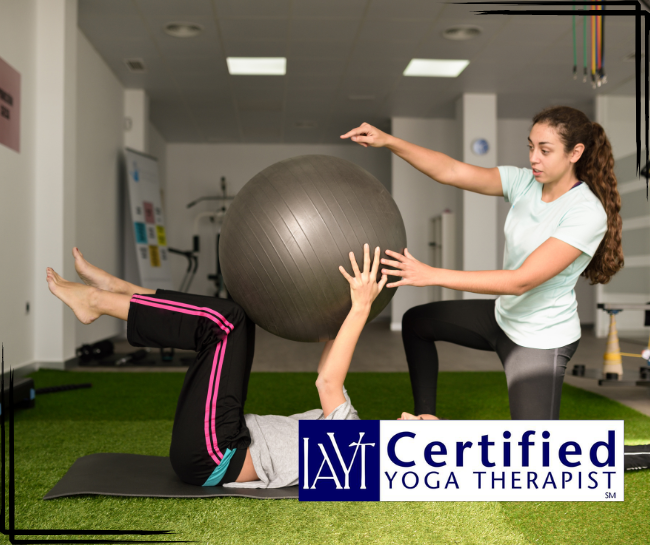
- Overview: This goes beyond general teaching and delves into therapeutic uses of yoga for specific health conditions.
- Best for: Those interested in the health and rehabilitative benefits of yoga.
- Where you can teach: Hospitals, rehabilitation centers, or private therapeutic sessions.
Specialized Certifications:
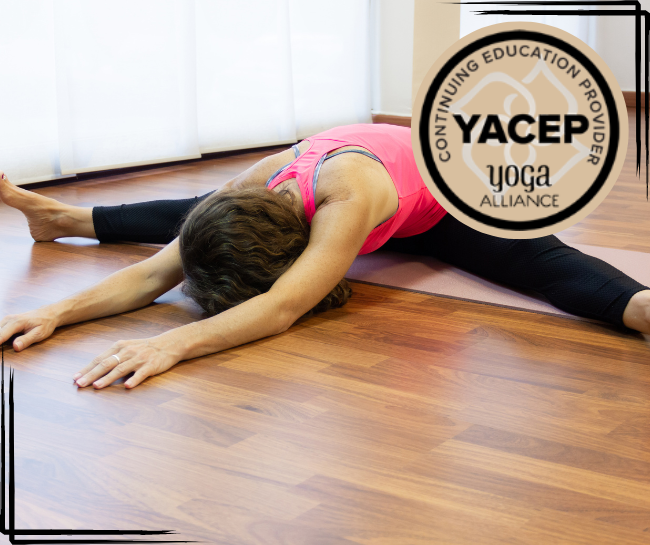
- Overview: These can range from Yin Yoga to AcroYoga and Aerial Yoga. They provide focused training on specific styles.
- Best for: Yoga teachers looking to diversify their skills and offerings.
- Where you can teach: Specialized studios or workshops offering these unique forms of yoga.
What Qualifications Do You Need to Be a Yoga Instructor?
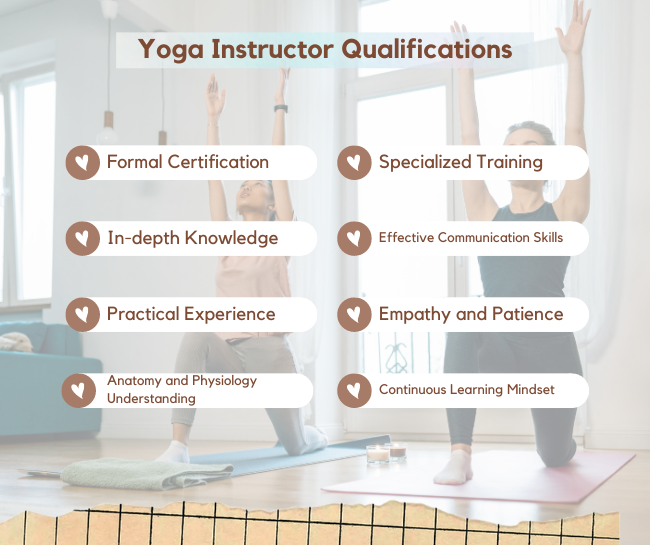
Embarking on the journey to become a yoga instructor is not just about acquiring a certificate. While certification is vital, certain prerequisites, both tangible and intangible, can set you apart as an exceptional teacher. Here’s a detailed look into the qualifications you need:
- Formal Certification:
This is the most fundamental requirement. As we discussed earlier, organizations like Yoga Alliance offer certifications like RYT 200 and RYT 500. These provide foundational and advanced training, ensuring that you’re well-versed in the diverse aspects of yoga.
- In-depth Knowledge:
Understanding the history, philosophy, and ancient scriptures of yoga (like the Bhagavad Gita or Yoga Sutras of Patanjali) deepens your connection with the practice. This knowledge allows you to teach with authenticity and depth.
- Practical Experience:
Before you teach, you must practice. Dedicate time to personal practice, understand postures (asanas), breathing techniques (pranayama), and meditation to experience their transformative powers firsthand.
- Anatomy and Physiology Understanding:
A basic grasp of human anatomy helps you guide students safely. Knowing how muscles, joints, and systems work ensures you can assist students with adjustments, preventing injuries and maximizing benefits.
- Specialized Training (Optional):
If you’re looking to cater to a specific group (like pregnant women or children), acquiring additional specialized certifications can be advantageous.
- Effective Communication Skills:
Being a yoga instructor isn’t just about guiding postures; it’s about connecting with students. Clear communication ensures students understand instructions and feel supported in their journey.
- Empathy and Patience:
Every student is unique. Some might struggle with postures or face emotional challenges. Being empathetic and patient allows you to create an inclusive, nurturing environment.
- Continuous Learning Mindset:
Yoga is vast and ever-evolving. Dedicate yourself to lifelong learning. Attend workshops, join retreats, and read constantly to keep expanding your knowledge.
Becoming a yoga instructor is a holistic journey, blending both personal growth and professional development. While certificates open doors, it’s your passion, dedication, and continuous commitment to learning that will define your success and impact in the yoga community.
Steps to Become a Certified Yoga Instructor
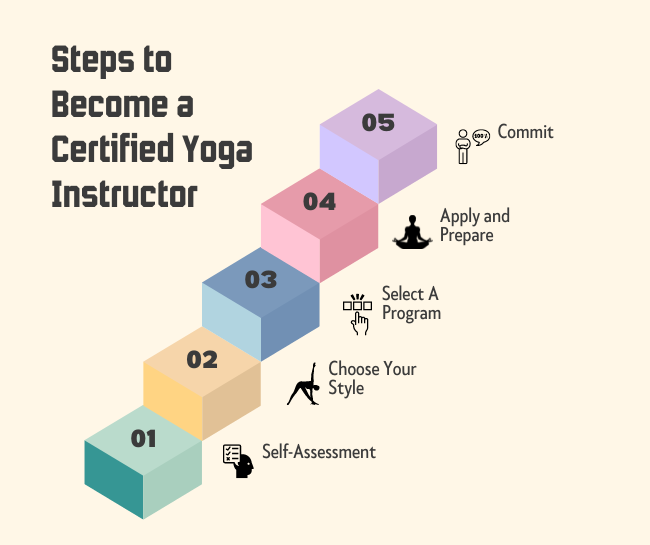
Transforming your passion for yoga into a fulfilling profession is a dream for many. As you stand at the threshold of this transformative journey, understanding the roadmap ahead is pivotal. Here’s a comprehensive guide to navigating the path to yoga certification:
- Self-Assessment: Ensure you have the necessary physical and mental preparedness.
- Choose Your Style: From Ashtanga to Vinyasa, decide which yoga style resonates with you.
- Select a Program: Research thoroughly, read reviews, and maybe even attend a few classes to get a feel of the instructors.
- Apply and Prepare: Once you’ve selected a program, apply and start prepping. Some schools require you to have practiced yoga for a minimum number of months or years.
- Commit: Whether it’s a month-long intensive course or a year-long weekend program, make sure you can commit to the schedule.
Next Steps
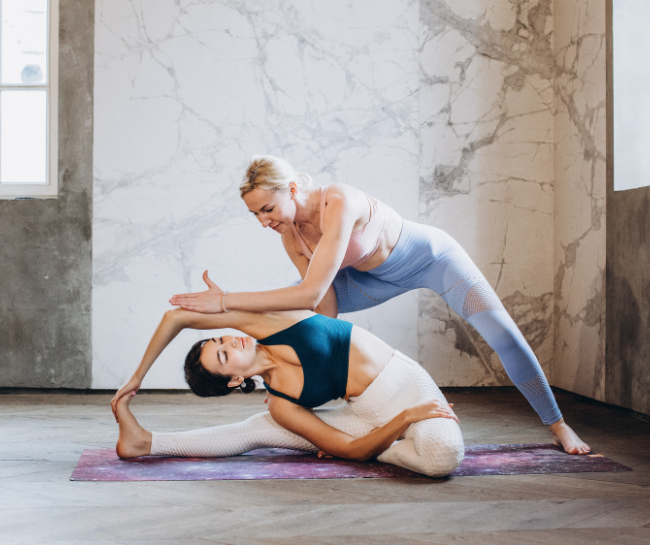
Becoming a certified yoga instructor is a fulfilling journey that doesn’t just end with getting a certificate. The real voyage starts when you begin to share your skills and passion for yoga with others. Take the first step today—your dream career awaits you.
Are you prepared to take your yoga studio to the next level? Delve into our informative blog, “How to Advertise Yoga Classes to Reach More New Members.” Uncover valuable insights to flourish. Moreover, unleash the full potential of your studio with Spark Membership Software – the essential tool for seamless management and expansion. Begin exploring now and revolutionize your yoga journey!